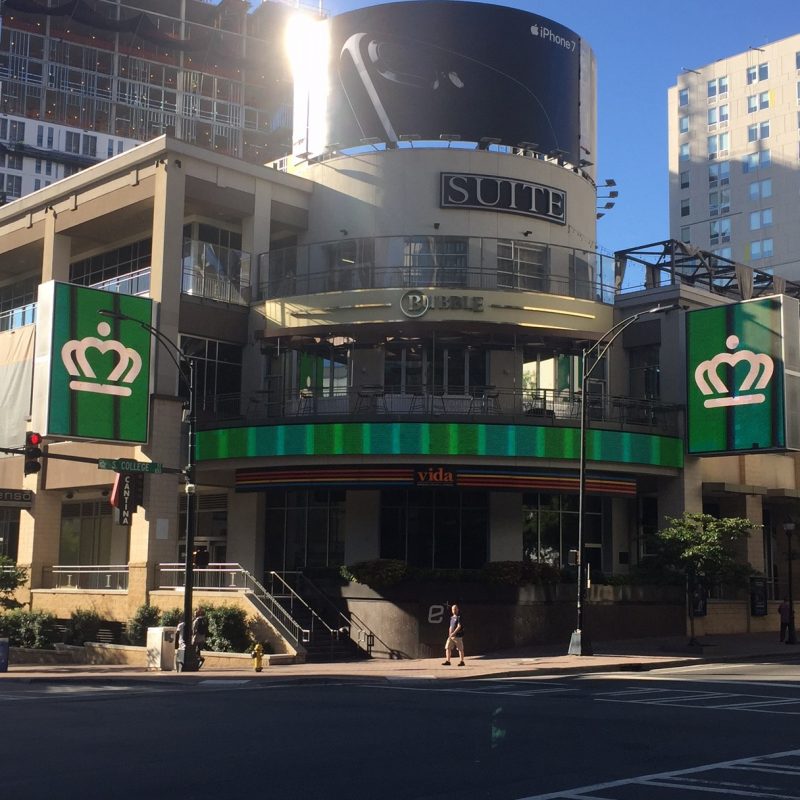Am I A Hypocrite For Doing the Whole30?
I’ve wrestled with that question for quite some time now, even before I started this. As a woman who has overcome various eating disorder tendencies and is actively working to help those who struggle with eating disorders, disordered eating, and body image issues, does doing the Whole30 (which can be seen as a restrictive diet) contradict what I preach?
I sure hope not. I’m not doing this to lose weight or to control my food or to fall back into patterns of behavior that I have worked through and overcome. I simply ask, if you are struggling with an eating disorder please, please seek professional help. And if you’re already in the throes of recovery, there’s no need to do anything like the Whole30 (my personal opinion, listen to your doctor above all).
A Bird’s Eye View of An Eating Disorder
I do fear that, for some, my posts about the Whole30 may be triggering, because the Whole30 has a very long list of banned foods. And in a disordered eating state of mind, there is sometimes (not all the time) an extensive list of banned foods. Those foods-which-shall-not-be-eaten are often obsessed over and fuel the eating disorder by giving the one with the eating disorder a sense of control over his or her life.
And it becomes a vicious cycle of control and obsession and control and obsession that takes over the mind and rules with an iron fist.
“No, you can’t eat that. It’ll make you fat. Do you want to be fat? No. Because if you are fat no one will like you. You’ll be lonely. You’ll be… imperfect.”
It clutches onto the soul and holds you captive within your own body (which is a body that is blessed with grace and beauty), and the cycle of control and obsession and control and obsession make you at war with who you are, body and soul.
But then you get to a point where you just can’t take no more, and by the grace of God you enter recovery. And recovery is messy. It’s full of ups and downs. It’s a path of perseverance and fighting the powerfully negative thoughts that enter the mind when you begin eating foods that have been on your long list of DO NOT EAT for so long. And there’s weight gain. There’s insecurity. There’s therapy. A lot of therapy.
And then finally, after the relapses, the persistence, the mental rollercoasters, you get to a place of peace. You realize food is fuel. You’re happy with you – mind, body, and soul. You relish in days spent with friends or family by the pool in a bathing suit. You laugh. And laugh. And laugh some more.

From there, it’s not always rainbows and butterflies, as life never is, and that’s the beauty of it all. But once you’ve recovered from an eating disorder, you approach life with a sense of gratitude and a sense of peace.
Thank you, God for never abandoning me even when I was at my lowest low. Thank you, God for allowing me to see the beauty in this day and in me. Thank you, God for giving me another chance at life.
I’m Imperfect… And That’s OK
I’ve attempted the Whole30 multiple times, and as I’ve mentioned, I’ve failed each time. I failed, because I wasn’t invested. And I wasn’t invested, because I spent YEARS controlling every ounce of food that went into this body. Sure as heck I wasn’t succumbing to that again.
But more time has passed since my last attempt, and again, as I wrote in my initial post I’m embarking on this journey for various reasons. Weight, honestly and truly, has nothing to do with it. My clothes still fit the same. I’m eating more than I typically do. And I’m at a place in my life where I just don’t give a… anymore about obsessing over what I look like.
Yes, insecurities are still there, but when they creep in I remind myself to, “Buck up, buttercup. There’s so much more to care about in this life than what you look like.” Some days that works. Some days I just change my outfit into something more comfortable and say, “Well, this is as good as it’s gonna get.”

Has The Whole30 Brought Back Eating Disorder Behaviors?
In short, no. In fact, it’s helped me begin to form a healthier relationship with food. I found that I snack… a lot. Mainly because I tend to not be hungry and then all of a sudden hunger hits and I’m too impatient to cook.
Oh, that’s another thing. Eating disorders mess up your hunger signals. I’m still working on leveling mine out.
So, it’s helped me cut back on the snacking and cook more healthy and nutrient-packed meals.
I’ve also found that I don’t obsess over food or use food as a stress reliever anymore. After a long day of work, the option to call up a friend and say, “Hey, let’s grab dinner and drinks” isn’t on the table anymore.
Instead, I’ve been having A LOT of coffee dates. Or, when I’m stressed, I’ve spent more time writing or reading, and working through the stress instead of consuming the stress with food or an alcoholic beverage.
And I’ve found that this is a heck of a lot easier than I thought it was going to be. I have so much free time to pursue my passions – this blog, running, my faith, community service, work – and my anxiety is a lot lower than it has been recently.
What Does the Whole30 Say About Eating Disorders?
I did some research, and when I say research I mean I did a couple Google searches, on what the Whole30 says about their program and eating disorders. Here was my favorite quote (and a pretty good practice to follow in any situation in life) regarding quitting the Whole30 if/when it sparks disordered eating behavior:
This is not quitting. This is not weakness. This is not failure. This, if anything, is strength, and courage, and success. You are making a conscious, deliberate decision to do what is best for your health at this moment, and that is to be applauded.
But, let’s be honest. Whole30 isn’t the end all and be all. And I’m sure as heck not doing this for the rest of my life. I want to enjoy food – good, rich, healthy food. And I want to enjoy the company and camaraderie that surrounds food.
I found a blog post (Why The Whole30 Isn’t the Pathway to Health) that plays devil’s advocate in a way. And I have to agree with some of her points. Especially this one:
I have no doubt that this book has changed numerous individual’s lives. When you go from eating crap or eating food-like substances, there is no doubt you will feel better and lose weight. Absolutely no doubt. However, you don’t have to remove quality grains, Greek Yogurt, beans, edamame, and natural peanut butter for 30 days to get there. Whole 30 is NOT the end all be all to health.
So, there are mixed reviews out there. Personally, I’ve enjoyed the experience, the challenge, and the peace of mind I’ve experienced through this journey (oh, and the tons of money I’m saving).
But if you are not at a place of full recovery from an eating disorder, I do not recommend the Whole30, and you should consult your doctor/therapist/nutritionist before ever embarking on a food program.
I totally forgot to take pictures of my food this week. Here are a couple salads:




